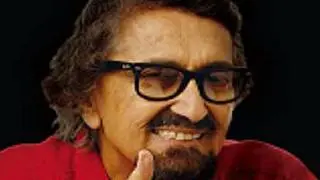To many of my generation, who grew up in the 1980s, a standard question would be, did you watch the World Cup finals, when India, the underdog, beat the mighty West Indies? My father, who had steadfastly held out against buying a black & white TV, bought a colour Solidaire set just before the 1982 Asiad. So, I was fortunate to watch the finals in splendid colour. I was ensconced in a couch, half-asleep, watching Viv Richards thrash the hapless Indian attack, but bolted wide awake when Kapil Dev took that electrifying catch to dismiss him.
Nikhil Naz’s book Miracle Men (Hachette India, ₹399) revives memories of that famous win which transformed Indian cricket. Naz has dug into the memories of many of the protagonists of that heady summer to piece together an anecdote-filled account of what went on behind the scenes in the run-up to the finals. Many of the cricketers on that team actually didn’t believe they would even make the semi-finals and were booked for a series of exhibition matches in the US organised by expats there.
The plan was to play the World Cup games and then after the Indian team was knocked out of the tournament, watch the semis and finals from the sidelines and post that head for the US for a cricket-cum-holiday trip! Well, it was captain Kapil Dev, still rustic at the edges, who stoked the fire in the belly of the team, which till then didn’t believe in itself.
Naz has picked up many little gems from his conversations with the team members on that tour. For instance, when Kapil exhorts his players in the dressing room, Kirti Azad stands behind the captain, enacting a catch in the slips after every grammatically incorrect sentence the skipper utters — a visual metaphor for ‘slip of the tongue’! Of course, in the end, Kapil’s English or accent didn’t matter, when Dev’s Devils won the cup in dramatic fashion. And, the one at a post-match conference when Kapil is asked, ‘Will India ever produce another Kapil Dev?’ ‘Never! My mother old, father no more!’ is the skipper’s retort.
The book captures the drama behind each of the matches in India’s march to the finals. A whole chapter is devoted too to the semi-finals when India beat England completely to the surprise of the local press and fans alike. On the verge of victory, fans invade the pitch when there’s still a run needed to win and cops and stewards have to clear the ground for Sandip Patil to hit the winning run — and when he does turn the ball to third man, all the English players are running to the pavilion to avoid the rampaging fans.
What of the finals? After India scores 183, when the Windies walk off the field, Big Bird Joel Garner asks Malcolm Marshall if he will have to bat today. To which Marshall replies, ‘Yes, and you will have to too!’ Garner is surprised at this peculiar answer, but Marshall’s explanation is ‘when we chase small totals, everybody looks to the next person to finish the job.’ Prophetic those words were.
Naz captures several parallel stories in the book, alongside the cricket. The racial tensions in Thatcherite Britain of the ‘80s, the identity crisis that young Indian-origin Britons have, is an undercurrent that runs through the book. Then there’s the heart-warming story of Jiten Bhai Parekh, whose shop is ransacked by white youth. Parekh, on a whim, wagers the £600 he receives as insurance money on odds of 66:1 on an India win. Looked impossible when he placed the bet but he wins £39,600 on this wager! Like the Indian team, win big he did.







Comments
Comments have to be in English, and in full sentences. They cannot be abusive or personal. Please abide by our community guidelines for posting your comments.
We have migrated to a new commenting platform. If you are already a registered user of TheHindu Businessline and logged in, you may continue to engage with our articles. If you do not have an account please register and login to post comments. Users can access their older comments by logging into their accounts on Vuukle.